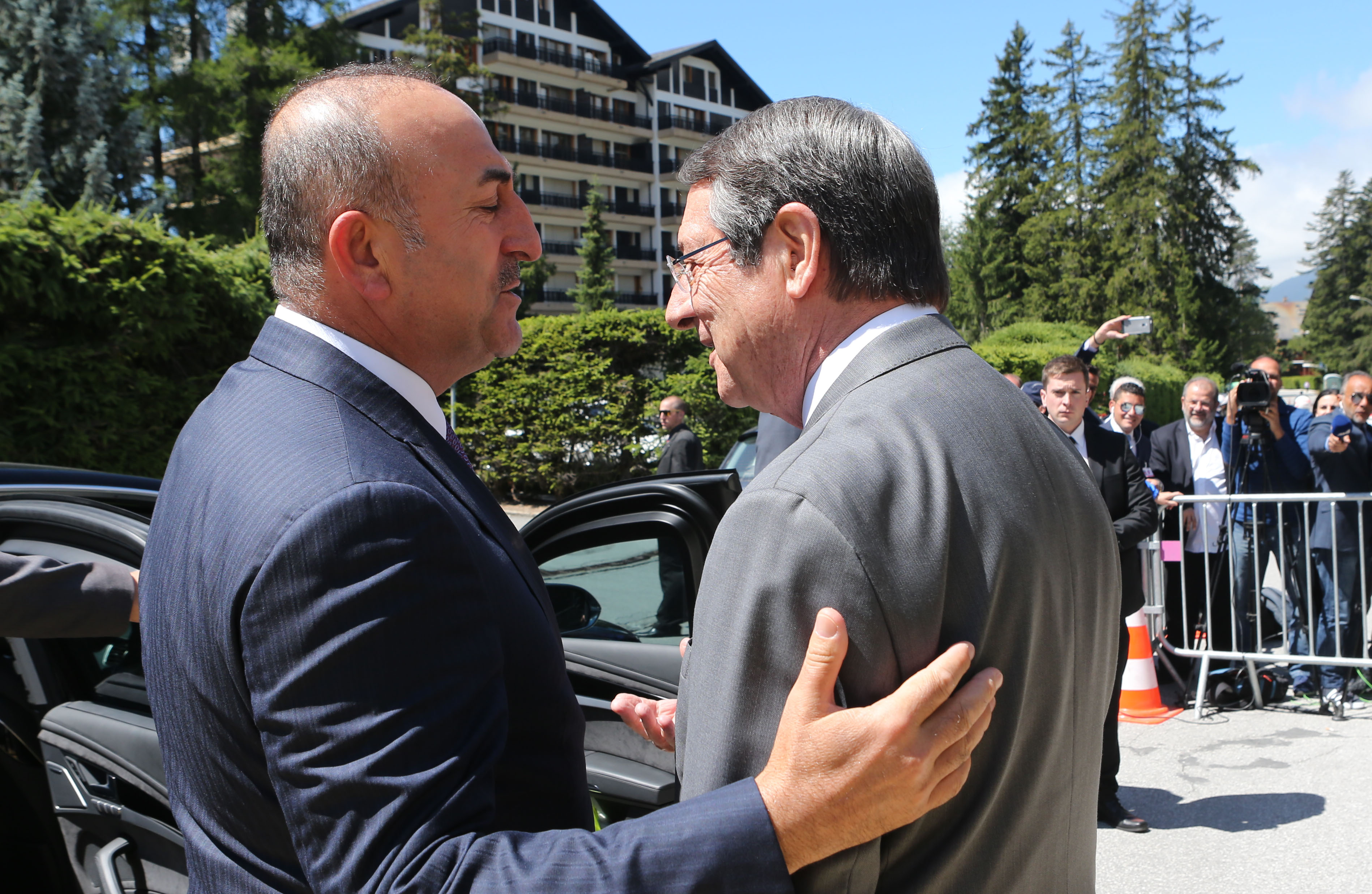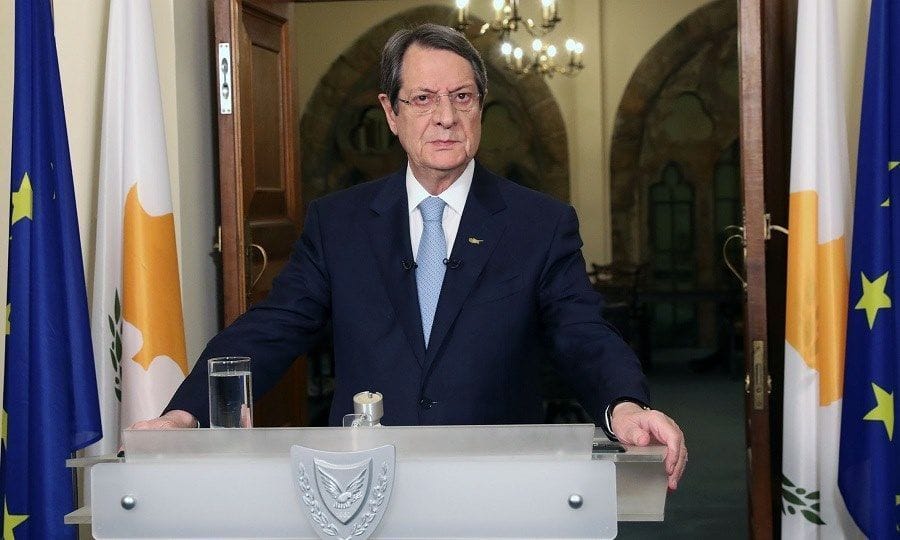Wishing to correct “all the distorted things that are written and repeated,” former president Nicos Anastasiades on Sunday published an article outlining his view of what happened during the Cyprus talks in 2017 in Crans Montana.
He referred to those talks as “the most promising attempt to resolve the Cyprus problem”, saying he felt the need to repeat with irrefutable evidence the facts of what occurred in the Swiss resort and not what is presented by third parties.
He said two unsubstantiated narratives had arisen since then: the issue of guarantees and the unilateral right of intervention would be abolished, and that the troops would withdraw at a rapid pace and be reduced to the level of the 1960 Treaty of the Alliance (650 soldiers), while the possibility of a total withdrawal was open; and that he left the negotiating table for the sake of his re-election in 2018, or because of Moscow’s interventions, leading to it being his fault the dialogue was interrupted and collapsed.
His response, Anastasiades said, was based on the confidential minutes of UN secretary-general Antonio Guterres from bilateral meetings and the crucial dinner of July 6, in addition to public statements by Turkish Foreign Minister Mevlut Cavusoglu, and the UNSG’s report handed to the Security Council in September 2017.
In the confidential UN minutes, leaked to the press in 2021, Cavusoglu is reported to have said the treaty of guarantee is a taboo subject between Turkey and the Turkish Cypriots, as the latter had vital security concerns. That is why it was extremely difficult for Turkey to change position on the issue although it had shown flexibility.
To prove how flexible his country was, he said Turkey could accept renaming to an Implementing Treaty with a review possible of other aspects of a solution proved successful.
“I should also point out that Turkey’s generosity was limited to the review and not to the termination of the Implementation Treaty and the unilateral sunset clause, as claimed by those who credit Turkey with good intentions,” Anastasiades said.
He added that Cavusoglu himself had said “There is no sunset clause. If someone dreams this, he must wake up.”
The records also show, Anastasiades said, that when asked if a review of troop presence was acceptable to Turkey, Cavusoglu said he was unable to answer but that the Turkish Cypriots would never accept this, because they did not feel safe.
He then refuted that troop numbers could be reduced to those at the Treaty of Alliance (650) although this had been accepted in talks in 2004.
“It is obvious that what Turkey sought is the creation of a military base with a permanent presence of an increased number of soldiers, not for the alleged protection of the Turkish Cypriots but for the conditions outside Cyprus (Syria, energy, terrorism),” Anastasiades said.
He also drew attention to Cavusoglu’s comments to journalists that “Greek Cypriots and Greece should wake up from the dream that there will be no Turkish army and guarantees.”
Also important are what was recorded in the minutes about the “main points that were raised” during the dinner.
The Secretary-General, Anastasiades said and backed by recorded minutes, “considered it better to close the conference by saying that the necessary elements for a solution cannot be achieved. Taking into account the facts around the table, the Secretary-General said that a simple statement needed to be issued that the Conference was closed after no agreement was reached.”
This came after a full day of consultations and bilateral meetings with all those involved.
“I will not comment at this stage on the unsubstantiated allegations that the conference was interrupted because the former President allegedly abandoned the negotiations, which is why the talks collapsed,” Anastasiades said. He said he would address this later.

But he did say recorded notes show that the main reasons for the collapse of the conference were Turkey’s intransigent stance on the Treaty of Guarantee and the unilateral right of intervention’ renaming the treaty; the Turkish intention to create a military base; the Turkish demand for the incorporation of the provisions of the solution into the primary law of the European Union.
“While the minutes speak for themselves, to complete the picture of the real causes that led to the wreck of the Crans Montana Conference, public statements by Mr. Cavusoglu should also be recorded, which refute those who adopt, for inexplicable reasons, disinformation instead of the truth,” Anastasiades said.
Cavusoglu, Anastasiades said, said that UN special Espen Barth Eide, was saying the summit is not the final one. The extension is a tactic of the Greek Cypriots. They have elections ahead of them. They want to drill off the coast of Cyprus.
“If in the end there will be a result the decision must be taken here this week, because this is a final conference,” Cavusoglu said.
“After all that has been mentioned above, it is very clear that the Greek Cypriot side and the Secretary General found themselves in front of an ultimatum,” Anastasiades said.
“I must reiterate that the UN Secretary-General’s observation that internal issues had almost been agreed or were within reach of an agreement, contrary to the future of the Treaty of Guarantees and the presence of foreign troops.”
He concluded his defence of it not being him that ended the conference by saying “what greater ambitions could the former President have had than ending the occupation and creating a functioning state, and why would he not be re-elected if he had reached an agreement as described by the eyewitnesses?”






Click here to change your cookie preferences